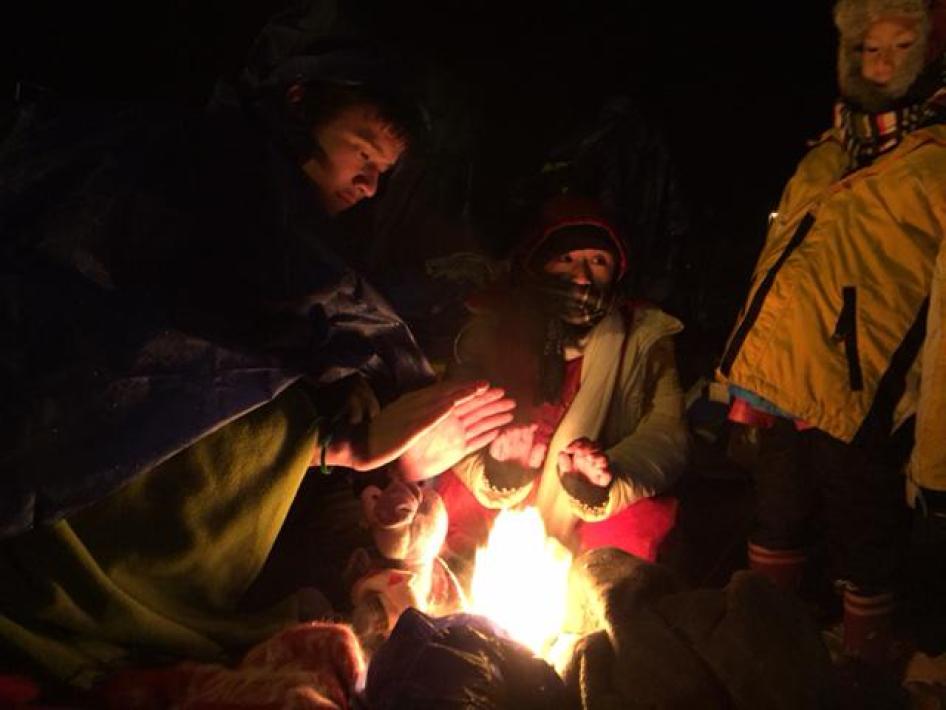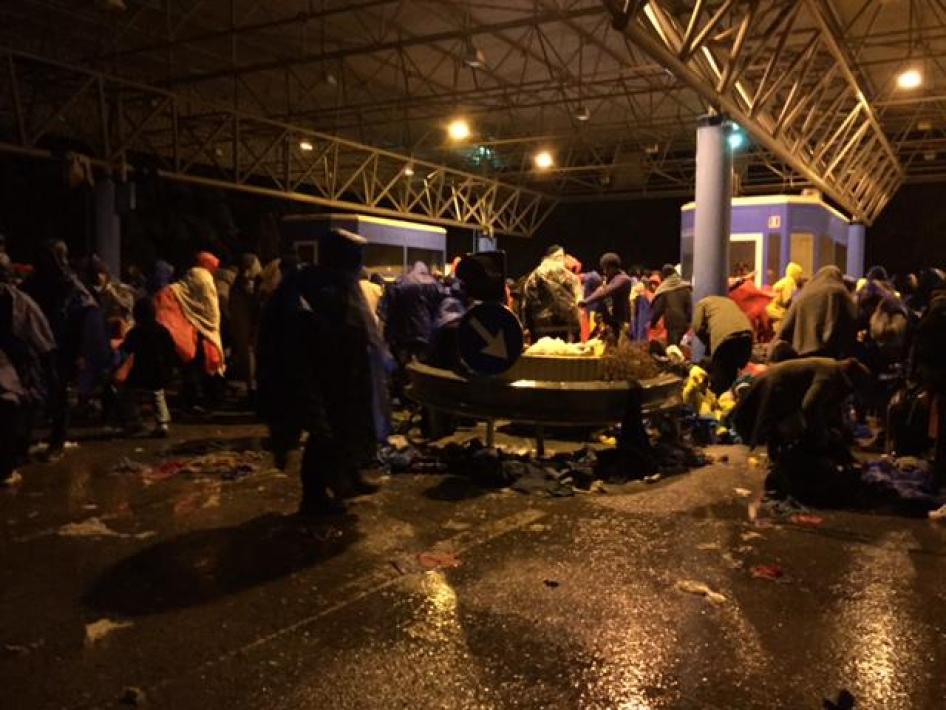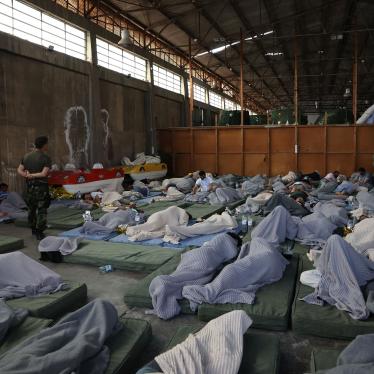“We are stuck between two borders. We can’t enter Slovenia and we are not allowed to go back into Croatia. Everyone says we are someone else’s responsibility.”
25-year-old Hadi from Syria was shivering as we spoke. He said he had been stuck for nearly 20 hours, exposed to rain and cold in the no-man’s land between the Croatian and Slovenian borders. I met him there last night, together with hundreds of other migrants and asylum seekers, including many women and children, who were brought from Croatia’s Tavornik camp at about 1 a.m. the morning before.
Police officers at both borders couldn’t say how long the people would be kept in this freezing limbo. The situation’s awfulness hit when I saw children burning a teddy bear to keep warm. There is no shelter, and refugees and volunteers told me that food and water didn’t arrive until late afternoon, when aid organizations were allowed into the site. When I returned the next morning, I was told that people who weren’t able to cross the border were taken by Croatian authorities to other crossing points on Slovenia’s border.
Mohammed from Syria had been separated from his wife and two children amid the chaos of boarding buses bound for a registration point on the Slovenian side, he said. He had no idea when and where he would see them again. Ali, also from Syria, told me he was shocked and that he couldn’t imagine that this could happen in Europe.
Apparently, it can. Over the past month, I have witnessed how cascading border closures in the Balkans leave thousands of people – including many children and families – stranded and exposed to the elements.
Hungary closed its border with Croatia on October 16, a month after closing its Serbian border. People then tried to cross into Slovenia from Croatia. But Slovenia said it would only admit as many people as Austria would take, and Austria complained it was full. Yesterday, Croatia, in turn, closed border-crossing points with Serbia, leaving thousands trapped in the rain and mud.
What is happening at European borders is directly related to the fact that European leaders, despite numerous summits and high-level meetings, still can’t agree to a common and coordinated approach to deal with the crisis.
Rather than focusing on beggar-thy-neighbor border closures, EU member states should work together to share responsibility, so people like Hadi can seek protection and have their basic humanitarian needs met. Failing to do so could mean a deadly winter at Europe’s borders.











